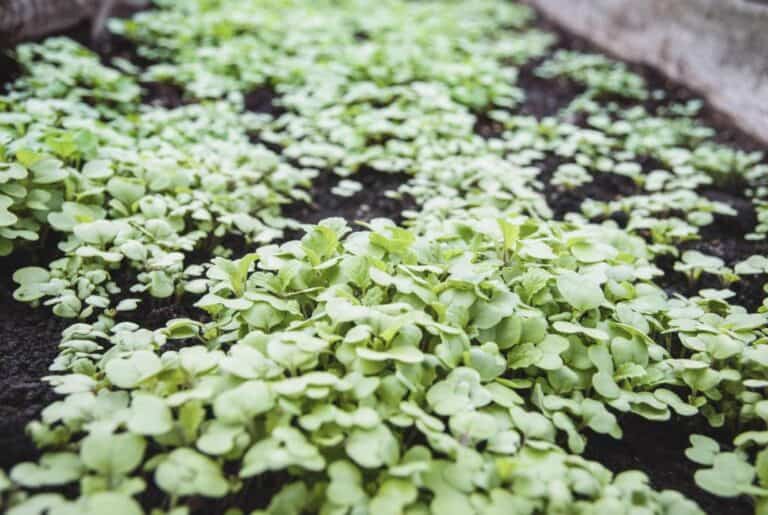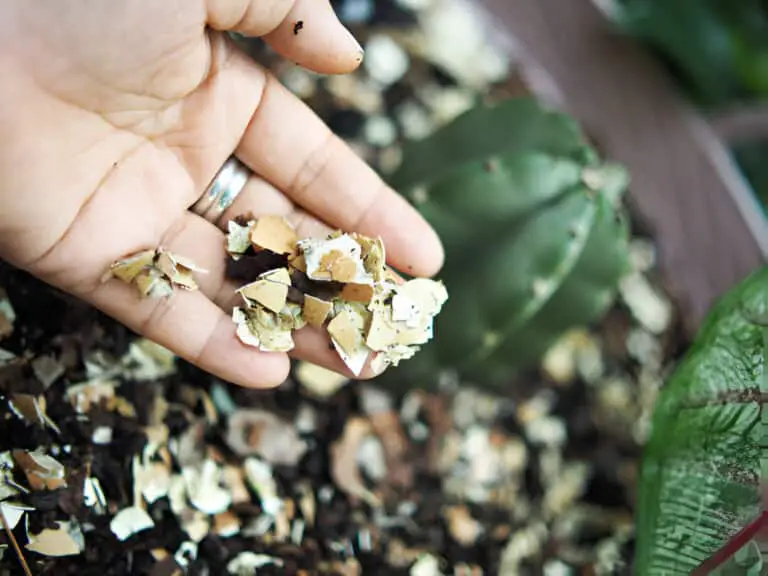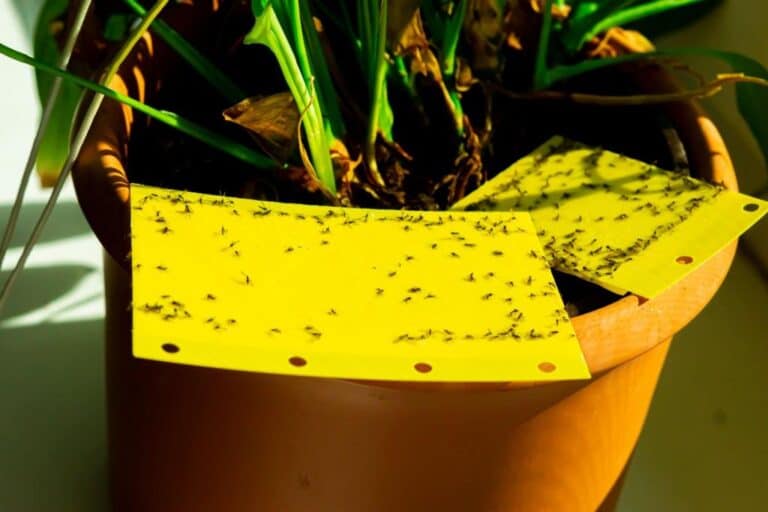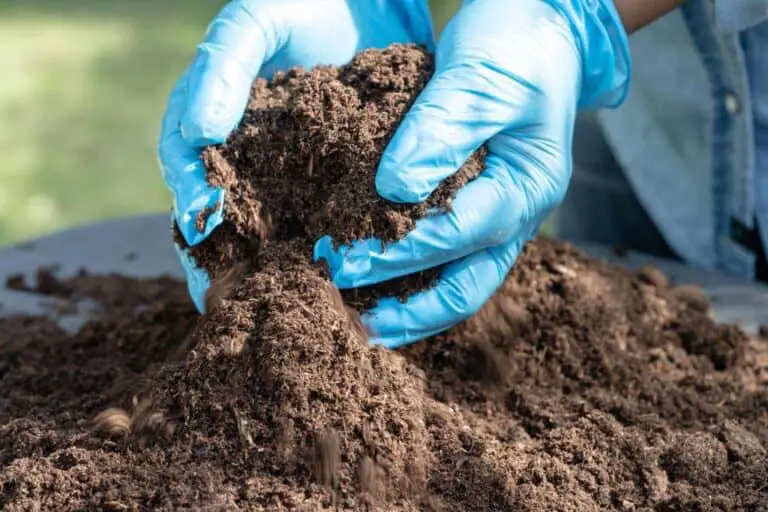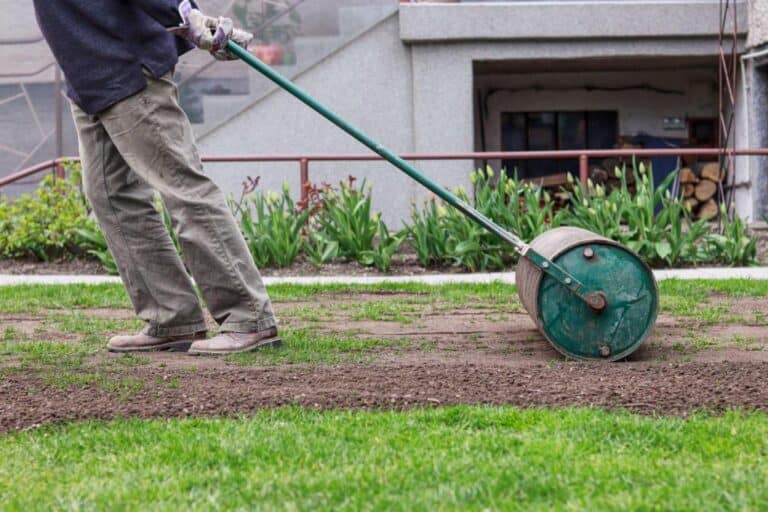Can Compost Be Used as Mulch? Tips for Sustainable Gardening
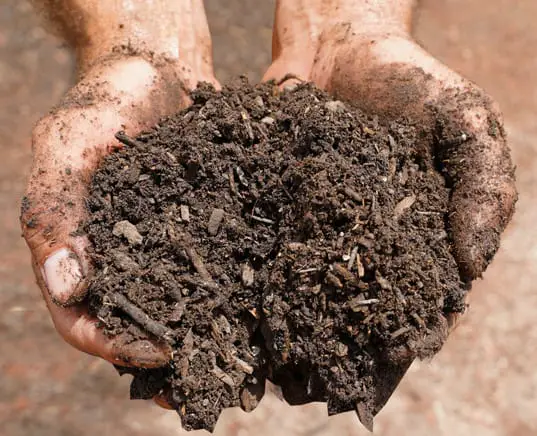
If you’re an avid gardener, you’ve likely heard of both compost and mulch. But did you know that these two gardening essentials are not the same? While compost and mulch share similarities, they serve different purposes in your garden.
Compost is a nutrient-rich soil amendment that helps improve the quality of your soil, while mulch is used to protect your soil and help your plants thrive.
However, can compost be used as mulch? The short answer is yes! In this article, we’ll explore the benefits of using compost as mulch, the differences between compost and mulch, and some tips for sustainable gardening. If you’re looking for ways to improve your garden while reducing waste, keep reading!
Understanding Compost and Mulch: What are They and How are They Different?
Compost and mulch are two terms that are often used interchangeably, but they are actually two different things. Compost is a nutrient-rich soil amendment that is created through the natural decomposition of organic materials such as food waste, leaves, and grass clippings.
Mulch, on the other hand, is a layer of material that is applied on top of the soil to help retain moisture, suppress weed growth, and regulate soil temperature.
One of the main differences between compost and mulch is their purpose. Compost is used to improve soil quality by adding nutrients, while mulch is used to protect and maintain soil quality. Compost is typically mixed into the soil, while mulch is left on the surface.
Another difference is the materials used to create them. Compost is made up of a variety of organic materials that have broken down over time, while mulch can be made from a range of materials such as wood chips, leaves, straw, and even rocks.
Most compost is made in a controlled way by layering and turning organic materials to speed up the decomposition process. Mulch can be created through a similar process or can be purchased in pre-made bags.
While compost and mulch have different purposes, they can both be used together in a garden for optimal results. Compost can be mixed into the soil to improve its quality, while mulch can be applied on top to protect the soil and retain moisture.
Does Mulch Turn Into Compost
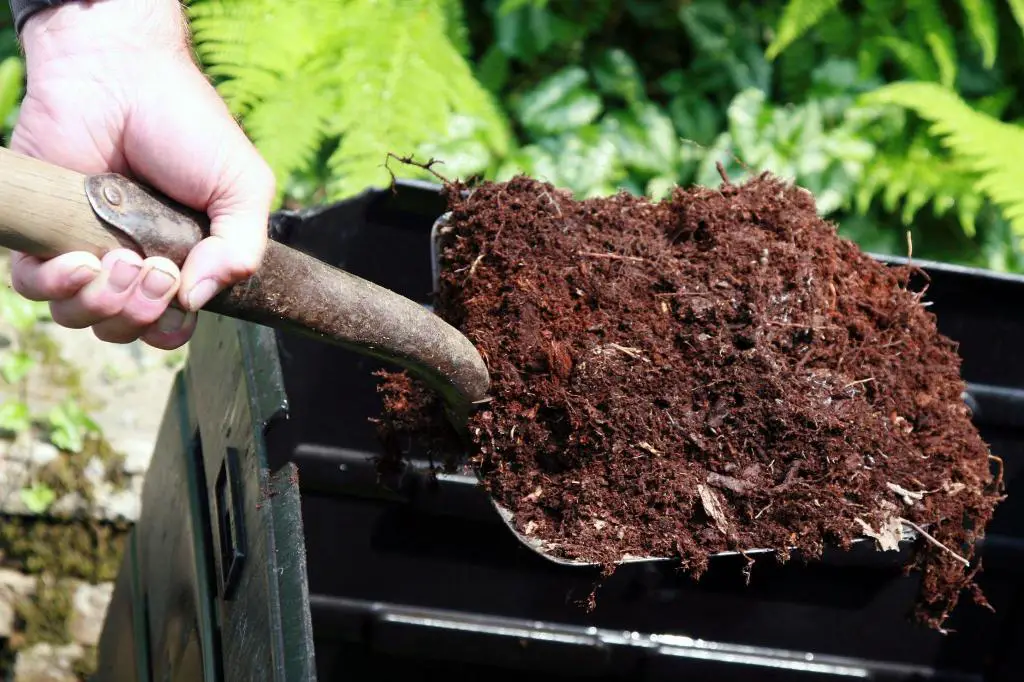
While mulch and compost are not the same thing, it is possible for mulch to eventually turn into compost over time. This is because both mulch and compost are made up of organic matter, such as leaves, twigs, grass clippings, and other plant materials. When these materials decompose, they release nutrients into the soil that plants can use.
The main difference between mulch and compost is the rate at which they break down. Mulch is typically made up of larger pieces of organic matter that take longer to decompose, such as wood chips or bark. As a result, mulch can last for several months or even years before it breaks down completely.
Benefits of Compost and Mulch
Before we dive into whether compost can be used as mulch, let’s take a closer look at the benefits of both.
Compost
Compost is a natural fertilizer that is made from decomposed organic matter. It is rich in nutrients and can improve soil structure, drainage, and water retention. By using compost in your garden, you can use fewer chemical fertilizers and help plants grow in a healthy way. Plus, composting can help reduce waste and greenhouse gas emissions by diverting organic materials from landfills.
Mulch
Mulch is a material that is spread on top of the soil to stop weeds from growing, keep the soil moist, and control the temperature of the soil. It can be made from a variety of materials, including wood chips, straw, leaves, and grass clippings. Mulching can also improve soil health by adding organic matter and nutrients over time.
Can Compost Be Used as Mulch?
The short answer is yes; compost can be used as mulch. In fact, many gardeners use a layer of compost as a top dressing for their garden beds. When used as mulch, compost can provide many of the same benefits as traditional mulches, including:
- Weed suppression
- Moisture retention
- Temperature regulation
- Improved soil health
However, there are some important considerations to keep in mind when using compost as mulch.
Nutrient Content
Compost is typically richer in nutrients than traditional mulches, which can be both a blessing and a curse. While the nutrients in compost can help promote healthy plant growth, they can also lead to overfertilization if applied too thickly. This can cause plants to grow too quickly, which can make them more susceptible to pests and disease.
To avoid over-fertilization, it’s important to apply compost as a thin layer, no more than 2-3 inches deep. This will provide the benefits of mulching without overwhelming your plants with nutrients.
Watering
Compost is also more absorbent than traditional mulches, which can be both good and bad. On one hand, compost can help retain moisture in the soil, which is especially beneficial during dry spells. On the other hand, compost can absorb so much water that it becomes waterlogged, which can lead to root rot and other problems.
To prevent waterlogging, it’s important to water your garden beds carefully when using compost as mulch. Start by watering deeply, then monitor the moisture levels in the soil. If the soil feels too damp, hold off on watering until it dries out a bit.
Appearance
Finally, it’s worth noting that compost may not be the most visually appealing mulch option. While some gardeners love the natural, earthy look of compost, others prefer the tidy appearance of traditional mulches like wood chips or straw. If appearance is a concern for you, consider using a layer of traditional mulch over your compost to create a more uniform look.
Benefits of Using Compost as Mulch
- Enriches Soil – Compost mulch is rich in nutrients and organic matter that helps to enrich the soil. It provides a steady stream of nutrients to your plants and helps to increase soil fertility.
- Retains Moisture – One of the primary benefits of using compost as mulch is its ability to retain moisture. It helps to reduce water loss through evaporation, keeping the soil moist and preventing it from drying out.
- Suppresses Weeds – Compost mulch helps to suppress weeds by creating a barrier between the weed seeds and the soil. The organic matter in compost mulch also helps to create a nutrient-rich environment that is beneficial to plants but less favorable for weeds.
- Reduces Soil Erosion – Compost mulch helps to reduce soil erosion by protecting the soil from the impact of heavy rain and wind. It helps to anchor the soil in place and prevent it from washing away.
- Improves Soil Structure – Compost mulch helps to improve soil structure by increasing soil porosity and reducing soil compaction. It allows for better water and air circulation, which promotes healthy root growth.
Tips for Using Compost as Mulch
If you’re interested in using compost as mulch in your garden, here are some tips to get you started:
- Make Your Own Compost – Compost is easy to make at home using kitchen scraps, yard waste, and other organic materials. Making your own compost is a sustainable and cost-effective way to improve soil health and provide your garden with nutrient-rich mulch.
- Apply Compost Mulch in Thin Layers – When applying compost mulch, it’s important to apply it in thin layers of no more than 2-3 inches. This helps to prevent the compost from becoming too compacted and allows for better water and air circulation.
- Avoid Applying Compost Mulch Too Close to Plant Stems – When applying compost mulch, it’s important to avoid applying it too close to the stems of plants. This can lead to stem rot and other plant diseases.
- Water Your Garden Regularly – Compost mulch helps to retain moisture in the soil, but it’s still important to water your garden regularly to ensure that your plants are getting the water they need.
- Add Compost Mulch Annually – Compost mulch breaks down over time, so it’s important to add new mulch annually to ensure that your garden is receiving a steady supply of nutrients.
Conclusion
In conclusion, compost mulch is a sustainable and effective alternative to traditional mulch materials. It helps your garden in many ways, like making the soil healthier, keeping water in, keeping weeds down, stopping erosion, and making the soil structure better. By following these tips for using compost as mulch, you can create a healthy and thriving garden while reducing your environmental footprint.


